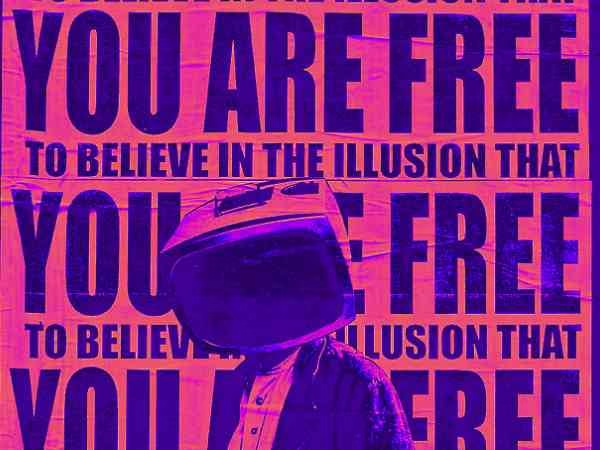Introduction: The Illusion of Freedom
They tell you that you are free. You’re free to think, to speak, to act.
But is that truly the case? And What is Freedom ?
The promise of freedom often feels like a shiny trap a seductive illusion presented in bright packaging. Modern democracies celebrate themselves as bastions of liberty, but how free are we really when expressing an unpopular opinion can end careers, destroy reputations, and invite state-level scrutiny?
You can’t question certain wars.
You can’t reject certain ideologies.
You can’t speak your mind without fear of being canceled, fined, or digitally erased.
Is this freedom or just a prettier, more digitized prison?
True freedom isn’t about permission. It’s about autonomy. And in the age of surveillance, censorship, and algorithmic bias, autonomy is disappearing fast.
What “Freedom” Really Means
The Manufactured Definition of Liberty
The modern idea of freedom has been polished into a consumer product. It’s advertised on billboards, wrapped in political speeches, and embedded in national anthems. Freedom is sold as:
- Freedom of speech
- Freedom of religion
- Freedom of choice
But what happens when each of these freedoms is subjected to conditional acceptance?

Freedom of Speech sounds noble — until it conflicts with the dominant narrative. Say the wrong thing on the wrong topic, and you’ll be silenced.
Freedom of Religion is cherished — until a practicing Muslim expresses values that contradict progressive ideologies.
Freedom of Choice is celebrated — until your options are curated by corporate algorithms and ideological gatekeepers.
Marketing Freedom, Selling Control
Freedom has become a brand. Like soda or sneakers. It’s plastered everywhere, while the product underneath is often hollow or compromised. Democracy is praised as the ultimate freedom system, yet voters across the world increasingly feel that elections change nothing. The policies remain the same, the wars continue, the elite stay in power.

Example:
In recent U.S. elections, many citizens voted against someone rather than for something. Why? Because real choices are disappearing. Instead of diverse ideas, we’re given polished binaries and told to pick a side.
Real freedom means choice. Not illusion. Not manipulation. Not fear.
Surveillance, Control, and Thought Policing
The Silent War on Your Mind
We’re living in what some scholars call the age of soft totalitarianism a world where control isn’t enforced with guns or prisons, but through data, fear, and digital manipulation.

Governments and corporations have unprecedented access to your:
- Messages
- Location
- Browsing habits
- Financial transactions
- Emotional triggers
Social Media Platforms track every click, every scroll, every hesitation. This data isn’t just stored it’s weaponized. Algorithms predict and shape your behavior, gently nudging you toward desired beliefs, approved content, and acceptable emotions.
You are not just being watched. You are being steered.
The Guardian – “The Snowden Revelations” Archive
The Surveillance State Is Not Science Fiction
The tools of surveillance aren’t confined to dystopian novels or authoritarian regimes. They exist here, now, in Western democracies.

Example 1: In the UK, cameras powered by facial recognition have been deployed in public spaces under the banner of “safety.”
Example 2: In the U.S., NSA surveillance programs were revealed to be collecting metadata on millions of citizens without their knowledge.
Example 3: In Europe, digital vaccine passports created a framework for tracking movement and behavior, normalized under the guise of health.
Today’s “freedom” exists inside a cage — a digital cage with glass walls.
Manipulation Through Language and Algorithms
The Power of Framing the Narrative
Controlling language means controlling thought. This is not theory it’s practice. Today, language is engineered to promote certain views and discredit others.

- “Fake news” became the weapon of choice to silence dissent.
- “Conspiracy theory” was repackaged to mean dangerous delusion, even if the “theory” was later proven true.
- “Hate speech” is now a catch-all term that often includes religious or traditional views.
Question: Who decides what is fake, hateful, or conspiratorial?
Answer: The same institutions that benefit from suppressing opposing voices.
Algorithmic Echo Chambers
You no longer choose your content algorithms do. They analyze your digital behavior to feed you more of what you already agree with, locking you in ideological echo chambers.
Ask yourself:
- When was the last time you saw a radically different opinion in your feed?
- When did you last search for something controversial and actually find honest results?

Algorithms don’t serve you truth. They serve you confirmation — or distraction.
The War on Critical Thinking
The System Doesn’t Want You to Think
Critical thinking is inconvenient for those in power. It leads to questions. Questions lead to discomfort. Discomfort leads to awakening.
That’s why society subtly discourages it:
- Schools teach obedience more than inquiry.
- Media presents narratives, not nuanced analysis.
- Influencers are rewarded for being agreeable, not critical.
You’re taught what to think, not how to think.
Tools for Independent Thinking
To escape this mental trap, you must:
- Question everything — even this article.
- Analyze sources — who benefits from the information you’re given?
- Diversify your intake — include alternative media, opposing views, and international perspectives.
- Look for patterns — across time, regions, and ideologies.

The first step toward real freedom is mental rebellion.
Curiosity: Your Tool for Rebellion
Why Curiosity Is Dangerous to the System
Every totalitarian system fears curiosity. Why?
Because a curious mind doesn’t comply. It doesn’t accept. It doesn’t worship the status quo.
- Curious minds ask why wars are fought.
- Curious minds ask who profits from fear.
- Curious minds don’t bow they think, they challenge, they evolve.
Curiosity is the first spark of revolution.
Conclusion: Break Free, Stay Curious
So are you truly free?
Not if you’re only allowed to speak when your thoughts are approved.
Not if your choices are shaped by unseen forces.
Not if your beliefs are curated by corporations.
Not if your mind is punished for asking questions.
Real freedom isn’t granted. It’s taken back through knowledge, through questioning, through curiosity.
To break free:
- Stop consuming passively.
- Start asking why again and again.
- Stay grounded in truth and open to uncomfortable answers.
- Let your curiosity be your compass, not your cage.

You don’t owe them obedience. You owe yourself the truth.
Share this article. Start the conversation. Don’t let the truth be hidden any longer.




